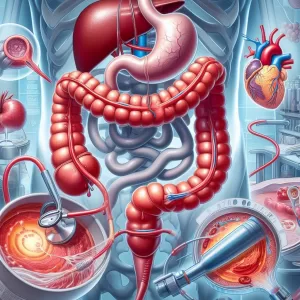Qu'est-ce qu'un oncologue ?
[wp_show_posts id=”2912″]
**What Is an Oncologist?**
**Definition:**
An oncologist is a medical specialist who focuses on the diagnosis, treatment, and management of cancer. They play a crucial role in providing comprehensive care to cancer patients.
**Types of Oncologists:**
* **Medical oncologists** specialize in treating cancer using systemic therapies such as chemotherapy, immunotherapy, and targeted therapy.
* **Surgical oncologists** perform surgeries to remove cancerous tumors.
* **Radiation oncologists** use radiation therapy to destroy cancer cells.
* **Gynecologic oncologists** treat cancers of the female reproductive system.
* **Pediatric oncologists** diagnose and treat childhood cancers.
**Education and Training:**
To become an oncologist, individuals must:
* Complete medical school.
* Obtain a medical license.
* Complete a fellowship in medical, surgical, or radiation oncology.
**Responsibilities of an Oncologist:**
An oncologist’s responsibilities include:
* Diagnosing cancer using medical tests and procedures.
* Developing and implementing treatment plans tailored to the patient’s specific condition.
* Prescribing and administering treatments, including chemotherapy, surgery, and radiation therapy.
* Monitoring patients’ progress and adjusting treatment strategies as needed.
* Providing emotional and psychosocial support to patients and their families.
* Conducting research to improve cancer diagnosis and treatment methods.
**Why See an Oncologist?**
It is essential to see an oncologist if you have:
* A confirmed cancer diagnosis.
* Suspicious symptoms that could indicate cancer, such as unexplained weight loss, fatigue, or changes in bowel habits.
* A family history of cancer.
* Concerns about cancer risks or prevention.
**Benefits of Seeing an Oncologist:**
Consulting with an oncologist provides many benefits, including:
* Access to specialized expertise and advanced treatment options.
* Personalized care plans tailored to your specific needs and circumstances.
* Early detection and diagnosis, which can lead to improved outcomes.
* Comprehensive and supportive cancer care from a team of medical professionals.
**What Is an Oncologist?**
**Definition:**
An oncologist is a medical specialist who focuses on the diagnosis, treatment, and management of cancer. They play a crucial role in providing comprehensive care to cancer patients.
**Types of Oncologists:**
* **Medical oncologists** specialize in treating cancer using systemic therapies such as chemotherapy, immunotherapy, and targeted therapy.
* **Surgical oncologists** perform surgeries to remove cancerous tumors.
* **Radiation oncologists** use radiation therapy to destroy cancer cells.
* **Gynecologic oncologists** treat cancers of the female reproductive system.
* **Pediatric oncologists** diagnose and treat childhood cancers.
**Education and Training:**
To become an oncologist, individuals must:
* Complete medical school.
* Obtain a medical license.
* Complete a fellowship in medical, surgical, or radiation oncology.
**Responsibilities of an Oncologist:**
An oncologist’s responsibilities include:
* Diagnosing cancer using medical tests and procedures.
* Developing and implementing treatment plans tailored to the patient’s specific condition.
* Prescribing and administering treatments, including chemotherapy, surgery, and radiation therapy.
* Monitoring patients’ progress and adjusting treatment strategies as needed.
* Providing emotional and psychosocial support to patients and their families.
* Conducting research to improve cancer diagnosis and treatment methods.
**Why See an Oncologist?**
It is essential to see an oncologist if you have:
* A confirmed cancer diagnosis.
* Suspicious symptoms that could indicate cancer, such as unexplained weight loss, fatigue, or changes in bowel habits.
* A family history of cancer.
* Concerns about cancer risks or prevention.
**Benefits of Seeing an Oncologist:**
Consulting with an oncologist provides many benefits, including:
* Access to specialized expertise and advanced treatment options.
* Personalized care plans tailored to your specific needs and circumstances.
* Early detection and diagnosis, which can lead to improved outcomes.
* Comprehensive and supportive cancer care from a team of medical professionals.
2 commentaires
Laisser un commentaire
Articles populaires







A doctor who treats cancer
A medical professional specializing in the diagnosis and treatment of cancer